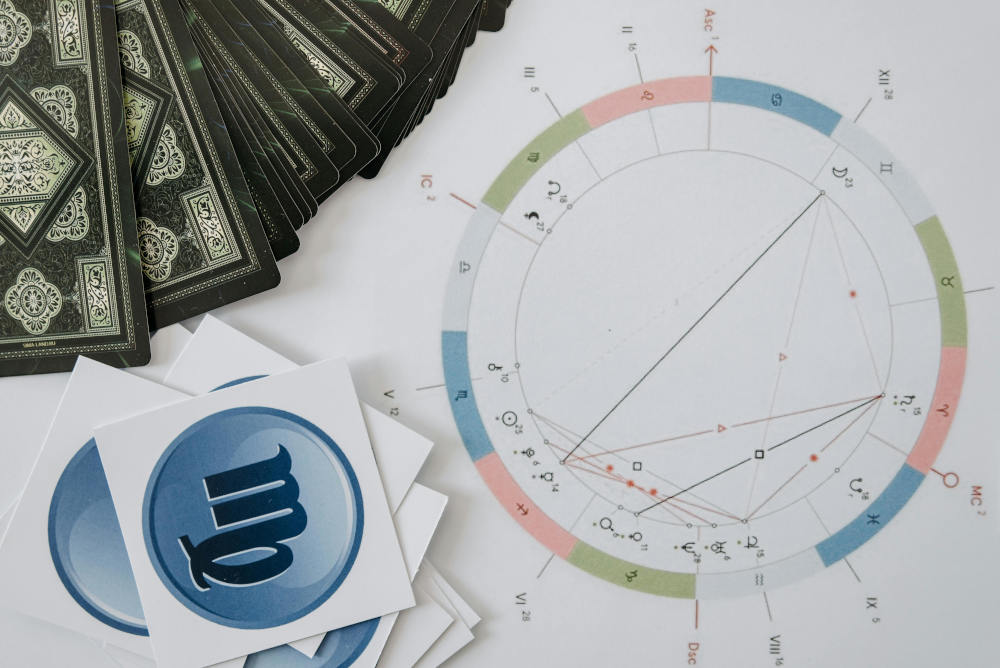
In the age of dating apps, love languages, and relationship coaching, astrology has made a powerful comeback. People increasingly ask, “What’s your sign?” before even getting to, “What’s your name?” From sun sign compatibility charts to apps like Co–Star and The Pattern, astrology is shaping how many people approach relationships. But the key question remains: Is astrology actually true in relationships? Can the stars really reveal who you’ll fall in love with—or why that one relationship failed?
This article explores the truth behind astrology in relationships, blending science, psychology, culture, and personal insight to offer a balanced perspective.
What Astrology Claims About Love and Compatibility
Astrology is based on the belief that celestial bodies—like planets and stars—affect human behavior and life events. When it comes to relationships, astrologers interpret the placement of the sun, moon, and planets at the time of birth to predict emotional tendencies, love languages, and compatibility.
Some common relationship-focused aspects in astrology include:
-
Sun signs (e.g., Leo, Taurus) representing basic personality traits.
-
Moon signs for emotional style.
-
Venus signs for love and attraction.
-
Synastry charts comparing two birth charts to assess compatibility.
Astrologers believe that certain signs naturally attract, while others may struggle due to conflicting elements (fire, water, earth, air). For example, fiery Aries might clash with emotional Pisces but vibe well with fellow fire signs like Leo or Sagittarius.
But how accurate are these cosmic predictions?
The Scientific Perspective: What Research Tells Us
From a scientific standpoint, astrology struggles to hold ground. Numerous studies have found no reliable evidence that astrological signs predict personality, behavior, or relationship success.
Key findings:
-
1985 Study in Nature: Physicist Shawn Carlson conducted a double-blind study involving professional astrologers. Results showed they couldn’t match natal charts to people’s psychological profiles better than chance.
-
2007 Review of Astrological Compatibility: Published in the Journal of Consciousness Studies, this analysis found no statistically significant correlation between zodiac signs and relationship outcomes.
-
Psychology and the Barnum Effect: People tend to accept vague, general statements as personally meaningful—a phenomenon that explains why horoscope descriptions often feel accurate.
So scientifically speaking, astrology isn’t a reliable tool for predicting or maintaining relationships. But that’s not the whole story.
Why Astrology Still Feels True for Many People
Despite scientific skepticism, astrology continues to thrive—especially in matters of love. Why?
1. Self-Reflection and Identity
Astrology offers a framework for understanding yourself and others. It gives people a vocabulary for discussing emotions, attachment styles, and recurring relationship patterns. Even if not “true” in a literal sense, it provides a mirror for personal insight.
2. Confirmation Bias
When people believe two signs are compatible, they tend to interpret events in a way that supports this belief. This selective focus reinforces the illusion that astrology “works.”
3. Symbolic Truth
Astrology operates more like mythology than science. It conveys truths not through data, but through symbols and stories. For many, the archetypes of zodiac signs offer a poetic understanding of love—similar to how fairy tales or spiritual texts offer deeper meaning.
4. Emotional Comfort
Astrology offers emotional security. It gives people a sense of control in the uncertainty of relationships—especially during heartbreak or confusion. It reassures that there’s a cosmic reason for everything.
Astrology in the Modern Dating World
Millennials and Gen Z are increasingly turning to astrology when navigating romantic relationships. The trend has shifted astrology from an esoteric belief system to a pop-culture mainstay in the world of dating and self-discovery.
Astrology-Based Dating Apps
-
The Pattern and Co–Star use natal chart data to suggest matches or describe compatibility.
-
These apps integrate astrology with psychological insights, creating a hybrid model of personality analysis.
Social Media Influence
Zodiac memes, compatibility videos, and astrological breakdowns of celebrity relationships flood platforms like TikTok and Instagram. These formats make astrology fun, relatable, and easily shareable—fueling its popularity.
Does Astrological Compatibility Really Predict Relationship Success?
Let’s break it down into two parts:
1. Can it predict initial attraction?
In some cases, yes—not because the stars made it so, but because of psychological priming. If you read that your sign matches well with someone else's, you might approach that person with more openness and positivity, increasing the chances of a good connection.
2. Can it predict long-term compatibility?
Long-term success depends on traits like emotional maturity, communication, shared values, and conflict resolution—factors that astrology doesn’t consistently predict. Two signs labeled “incompatible” may flourish if they have emotional intelligence and mutual respect.
Real-Life Couples: Mismatched Signs, Strong Bonds
Many successful couples have so-called “incompatible” signs. For example:
-
Barack Obama (Leo) and Michelle Obama (Capricorn) are astrologically mismatched based on sun signs but have a deeply respectful, long-lasting relationship.
-
Prince William (Cancer) and Kate Middleton (Capricorn) are also traditionally incompatible, yet their marriage remains strong.
These examples show that love is more than a birth chart—it’s about who you choose to be in the relationship.
How Astrology Can Still Be Useful in Relationships
When used wisely, astrology can enhance relationships—even without scientific backing.
1. Conversation Starter
Discussing astrology can lead to deeper conversations about emotional needs, strengths, fears, and past wounds.
2. Increased Empathy
Reading about your partner’s chart might help you appreciate their emotional style and love language, fostering compassion.
3. Conflict Insight
Astrology can help explain recurring conflicts in symbolic terms, opening the door for reflection and healing.
4. Personal Growth
Some use their natal chart as a roadmap for self-awareness, identifying growth areas and relational patterns.
When Astrology Becomes Harmful in Relationships
While astrology can be a helpful tool for reflection, problems arise when it’s treated as fate rather than guidance.
Potential pitfalls:
-
Self-fulfilling prophecies: Believing you and your partner are doomed by your signs can create distance and fear.
-
Judgment and stereotyping: Reducing someone to their sign overlooks their complexity.
-
Overdependence: Seeking astrological validation for every relationship decision can prevent trust in your own intuition and logic.
Conclusion: So, Is Astrology “True” in Relationships?
Scientifically speaking, astrology doesn’t accurately predict compatibility or relationship success.
Emotionally and symbolically, however, astrology can feel deeply true. It offers a poetic lens to explore the mystery of love, encourages self-reflection, and fosters meaningful conversations between partners.
The key is in how it's used:
-
If you treat astrology as a tool for self-discovery and communication, it can enhance your relationship.
-
If you rely on it to determine your fate or judge potential partners, it may limit your ability to experience love freely.
Final Word: Love is a Choice, Not a Chart
While the stars can inspire, they don’t decide. The real “truth” in a relationship comes from your actions, your emotional awareness, and your willingness to grow together. Whether you check your horoscopes daily or dismiss them entirely, the heart of every strong relationship is the same—connection, communication, and commitment.
Was this article helpful to you? Please tell us what you liked or didn't like in the comments below.
About the Author: Alex Assoune
What We're Up Against
Multinational corporations overproducing cheap products in the poorest countries.
Huge factories with sweatshop-like conditions underpaying workers.
Media conglomerates promoting unethical, unsustainable products.
Bad actors encouraging overconsumption through oblivious behavior.
- - - -
Thankfully, we've got our supporters, including you.
Panaprium is funded by readers like you who want to join us in our mission to make the world entirely sustainable.
If you can, please support us on a monthly basis. It takes less than a minute to set up, and you will be making a big impact every single month. Thank you.































0 comments